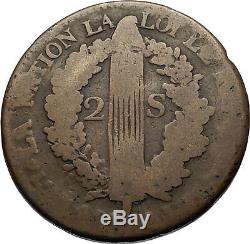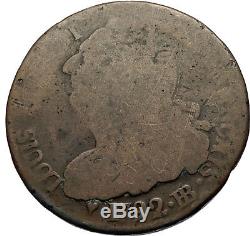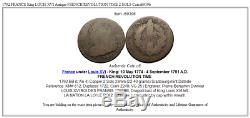
- Home
- Backstamp
- Brand
- Antique (65)
- Artikelbeschreibung (13)
- Baccarat (10)
- Century (11)
- Christofle (26)
- Clock (23)
- Dragon-antiques.com (18)
- Ercuis (10)
- French (15)
- Handmade (30)
- Louis Vuitton (20)
- Lucien Gau (11)
- Mirror (11)
- Puiforcat (11)
- Saint-louis (25)
- St Louis (11)
- St. Louis (15)
- Sèvres (8)
- Unknown (26)
- Unknown French Maker (8)
- ... (3215)
- Material
- Style
- Adams (10)
- Antique (48)
- Antique Style (15)
- Art Deco (22)
- Art Nouveau (37)
- Empire (22)
- France (10)
- French (424)
- French Country (27)
- French Empire (16)
- Louis Philippe (18)
- Louis Phillipe (13)
- Louis Xiv (60)
- Louis Xv (472)
- Louis Xvi (640)
- Miniature (13)
- Realism (19)
- Rococo (33)
- Traditional (15)
- Victorian (20)
- ... (1648)
- Subject
- Type
- Andiron (21)
- Armchair (64)
- Candelabra (32)
- Candlesticks (39)
- Chandelier (98)
- Clocks (33)
- Desk Clock (29)
- Flatware - Sets (34)
- Lamps (26)
- Mantel Clock (21)
- Mirrors (39)
- Painting (45)
- Photo Frame (26)
- Picture Frames (46)
- Print (25)
- Sconce (229)
- Side Table (22)
- Sofa (47)
- Vase (24)
- Wall Clock (20)
- ... (2662)
1792 FRANCE King LOUIS XVI Antique FRENCH REVOLUTION TIME 2 SOLS Coin i69396





Item: i69396 Authentic Coin of. King: 10 May 1774 - 4 September 1791 A.
LA NATION LA LOI LE ROI 2 S, fasces surmounted by cap within wreath. The French Revolution was a period of far-reaching social and political upheaval in France and its colonies beginning in 1789.
The Revolution overthrew the monarchy, established a republic, catalyzed violent periods of political turmoil, and finally culminated in a dictatorship under Napoleon who brought many of its principles to areas he conquered in Western Europe and beyond. Inspired by liberal and radical ideas, the Revolution profoundly altered the course of modern history, triggering the global decline of absolute monarchies while replacing them with republics and liberal democracies. Through the Revolutionary Wars, it unleashed a wave of global conflicts that extended from the Caribbean to the Middle East. Historians widely regard the Revolution as one of the most important events in human history.
The Storming of the Bastille, 14 July 1789. The causes of the French Revolution are complex and are still debated among historians. Following the Seven Years' War and the American Revolution, the French government was deeply in debt.
It attempted to restore its financial status through unpopular taxation schemes, which were heavily regressive. Leading up to the Revolution, years of bad harvests worsened by deregulation of the grain industry also inflamed popular resentment of the privileges enjoyed by the aristocracy and the Catholic clergy of the established church. Some historians hold something similar to what Thomas Jefferson proclaimed: that France had been awakened by our [American] Revolution. Demands for change were formulated in terms of Enlightenment ideals and contributed to the convocation of the Estates General in May 1789. During the first year of the Revolution, members of the Third Estate (commoners) took control, the Bastille was attacked in July, the Declaration of the Rights of Man and of the Citizen was passed in August, and the Women's March on Versailles forced the royal court back to Paris in October. A central event of the first stage, in August 1789, was the abolition of feudalism and the old rules and privileges left over from the Ancien Régime. The next few years featured political struggles between various liberal assemblies and right-wing supporters of the monarchy intent on thwarting major reforms.The Republic was proclaimed in September 1792 after the French victory at Valmy. In a momentous event that led to international condemnation, Louis XVI was executed in January 1793. External threats closely shaped the course of the Revolution.
The Revolutionary Wars beginning in 1792 ultimately featured French victories that facilitated the conquest of the Italian Peninsula, the Low Countries and most territories west of the Rhine - achievements that had eluded previous French governments for centuries. Internally, popular agitation radicalised the Revolution significantly, culminating in the rise of Maximilien Robespierre and the Jacobins.The dictatorship imposed by the Committee of Public Safety during the Reign of Terror, from 1793 until 1794, established price controls on food and other items, abolished slavery in French colonies abroad, de-established the Catholic church (dechristianised society) and created a secular Republican calendar, religious leaders were expelled, and the borders of the new republic were secured from its enemies. After the Thermidorian Reaction, an executive council known as the Directory assumed control of the French state in 1795. They suspended elections, repudiated debts (creating financial instability in the process), persecuted the Catholic clergy, and made significant military conquests abroad. Dogged by charges of corruption, the Directory collapsed in a coup led by Napoleon Bonaparte in 1799. Napoleon, who became the hero of the Revolution through his popular military campaigns, established the Consulate and later the First Empire, setting the stage for a wider array of global conflicts in the Napoleonic Wars.
The modern era has unfolded in the shadow of the French Revolution. Almost all future revolutionary movements looked back to the Revolution as their predecessor. Its central phrases and cultural symbols, such as La Marseillaise and Liberté, fraternité, égalité, ou la mort , became the clarion call for other major upheavals in modern history, including the Russian Revolution over a century later.The values and institutions of the Revolution dominate French politics to this day. The Revolution resulted in the suppression of the feudal system, emancipation of the individual, a greater division of landed property, abolition of the privileges of noble birth, and nominal establishment of equality among men. The French Revolution differed from other revolutions in being not only national, for it intended to benefit all humanity.
Globally, the Revolution accelerated the rise of republics and democracies. It became the focal point for the development of all modern political ideologies, leading to the spread of liberalism, radicalism, nationalism, and secularism, among many others.The Revolution also witnessed the birth of total war by organising the resources of France and the lives of its citizens towards the objective of military conquest. Some of its central documents, such as the Declaration of the Rights of Man and of the Citizen, continued to inspire movements for abolitionism and universal suffrage in the next century. Louis XVI (August 1754 - 21 January 1793), born Louis-Auguste , was the last King of France before the fall of the monarchy during the French Revolution. He was referred to as Citizen Louis Capet during the final weeks of his life.
In 1765, at the death of his father, Louis, son and heir apparent of Louis XV, Louis-Auguste became the new Dauphin of France. Upon his grandfather's death on 10 May 1774, he assumed the title "King of France and Navarre", which he used until 4 September 1791, when he received the title of "King of the French" until the monarchy was abolished on 21 September 1792. Louis XVI was guillotined on 21 January 1793.
The first part of his reign was marked by attempts to reform France in accordance with Enlightenment ideas. These included efforts to abolish serfdom, remove the taille , and increase tolerance toward non-Catholics. The French nobility reacted to the proposed reforms with hostility, and successfully opposed their implementation. Louis implemented deregulation of the grain market, advocated by his liberal minister Turgot, but it resulted in an increase in bread prices. In periods of bad harvests, it would lead to food scarcity which would prompt the masses to revolt.
From 1776, Louis XVI actively supported the North American colonists, who were seeking their independence from Great Britain, which was realised in the 1783 Treaty of Paris. The ensuing debt and financial crisis contributed to the unpopularity of the Ancien Régime. This led to the convening of the Estates-General of 1789. Discontent among the members of France's middle and lower classes resulted in strengthened opposition to the French aristocracy and to the absolute monarchy, of which Louis and his wife, Queen Marie Antoinette, were viewed as representatives. Increasing tensions and violence marked by events such as the storming of the Bastille during which riots in Paris forced Louis to definitively recognize the legislative authority of the National Assembly. Louis's indecisiveness and conservatism led some elements of the people of France to view him as a symbol of the perceived tyranny of the Ancien Régime , and his popularity deteriorated progressively. His disastrous flight to Varennes in June 1791, four months before the constitutional monarchy was declared, seemed to justify the rumors that the king tied his hopes of political salvation to the prospects of foreign invasion. The credibility of the king was deeply undermined, and the abolition of the monarchy and the establishment of a republic became an ever-increasing possibility.In a context of civil and international war, Louis XVI was suspended and arrested at the time of the insurrection of 10 August 1792; one month later, the constitutional monarchy was abolished; the First French Republic was proclaimed on 21 September 1792. He was tried by the National Convention (self-instituted as a tribunal for the occasion), found guilty of high treason, and executed by guillotine on 21 January 1793, as a desacralized French citizen under the name of "Citizen Louis Capet", in reference to Hugh Capet, the founder of the Capetian dynasty - which the revolutionaries interpreted as Louis' family name. Louis XVI was the only King of France ever to be executed, and his death brought an end to more than a thousand years of continuous French monarchy. France , officially the French Republic (French: République française), is a sovereign state comprising territory in western Europe and several overseas regions and territories.
The European part of France, called Metropolitan France, extends from the Mediterranean Sea to the English Channel and the North Sea, and from the Rhine to the Atlantic Ocean. France spans 640,679 square kilometres (247,368 sq mi) and has a total population of 67 million. It is a unitary semi-presidential republic with the capital in Paris, the country's largest city and main cultural and commercial centre. The Constitution of France establishes the state as secular and democratic, with its sovereignty derived from the people. During the Iron Age, what is now Metropolitan France was inhabited by the Gauls, a Celtic people.
The Gauls were conquered in 51 BC by the Roman Empire, which held Gaul until 486. The Gallo-Romans faced raids and migration from the Germanic Franks, who dominated the region for hundreds of years, eventually creating the medieval Kingdom of France. France emerged as a major European power in the Late Middle Ages, with its victory in the Hundred Years' War (1337 to 1453) strengthening French state-building and paving the way for a future centralized absolute monarchy. During the Renaissance, France experienced a vast cultural development and established the beginning of a global colonial empire.The 16th century was dominated by religious civil wars between Catholics and Protestants (Huguenots). France became Europe's dominant cultural, political, and military power under Louis XIV.
French philosophers played a key role in the Age of Enlightenment during the 18th century. In 1778, France became the first and the main ally of the new United States in the American Revolutionary War. In the late 18th century, the absolute monarchy was overthrown in the French Revolution. Among its legacies was the Declaration of the Rights of Man and of the Citizen , one of the earliest documents on human rights, which expresses the nation's ideals to this day. France became one of modern history's earliest republics until Napoleon took power and launched the First French Empire in 1804. Fighting against a complex set of coalitions during the Napoleonic Wars, he dominated European affairs for over a decade and had a long-lasting impact on Western culture. Following the collapse of the Empire, France endured a tumultuous succession of governments: the monarchy was restored, it was replaced in 1830 by a constitutional monarchy, then briefly by a Second Republic, and then by a Second Empire, until a more lasting French Third Republic was established in 1870.By the 1905 law, France adopted a strict form of secularism, called laïcité , which has become an important federative principle in the modern French society. France reached its territorial height during the 19th and early 20th centuries, when it ultimately possessed the second-largest colonial empire in the world. In World War I, France was one of the main winners as part of the Triple Entente alliance fighting against the Central Powers. France was also one of the Allied Powers in World War II, but came under occupation by the Axis Powers in 1940.
Following liberation in 1944, a Fourth Republic was established and later dissolved in the course of the Algerian War. The Fifth Republic, led by Charles de Gaulle, was formed in 1958 and remains to this day.
Following World War II, most of the empire became decolonized. Throughout its long history, France has been a leading global center of culture, making significant contributions to art, science, and philosophy. It hosts Europe's third-largest number of cultural UNESCO World Heritage Sites (after Italy and Spain) and receives around 83 million foreign tourists annually, the most of any country in the world. France remains a great power with significant cultural, economic, military, and political influence. It is a developed country with the world's sixth-largest economy by nominal GDP and eight-largest by purchasing power parity.
According to Credit Suisse , France is the fourth wealthiest nation in the world in terms of aggregate household wealth. It also possesses the world's second-largest exclusive economic zone (EEZ), covering 11,035,000 square kilometres (4,261,000 sq mi). French citizens enjoy a high standard of living, and the country performs well in international rankings of education, health care, life expectancy, civil liberties, and human development. France is a founding member of the United Nations, where it serves as one of the five permanent members of the UN Security Council. It is a member of the Group of 7, North Atlantic Treaty Organization (NATO), Organisation for Economic Co-operation and Development (OECD), the World Trade Organization (WTO), and La Francophonie.
France is a founding and leading member state of the European Union (EU). World-renowned expert numismatist, enthusiast, author and dealer in authentic ancient Greek, ancient Roman, ancient Byzantine, world coins & more. Ilya Zlobin is an independent individual who has a passion for coin collecting, research and understanding the importance of the historical context and significance all coins and objects represent. Send me a message about this and I can update your invoice should you want this method.
Getting your order to you, quickly and securely is a top priority and is taken seriously here. Great care is taken in packaging and mailing every item securely and quickly. What is a certificate of authenticity and what guarantees do you give that the item is authentic?
You will be very happy with what you get with the COA; a professional presentation of the coin, with all of the relevant information and a picture of the coin you saw in the listing. Additionally, the coin is inside it's own protective coin flip (holder), with a 2x2 inch description of the coin matching the individual number on the COA.
Whether your goal is to collect or give the item as a gift, coins presented like this could be more prized and valued higher than items that were not given such care and attention to. When should I leave feedback? Please don't leave any negative feedbacks, as it happens sometimes that people rush to leave feedback before letting sufficient time for their order to arrive. The matter of fact is that any issues can be resolved, as reputation is most important to me. My goal is to provide superior products and quality of service. How and where do I learn more about collecting ancient coins? Visit the Guide on How to Use My Store. For on an overview about using my store, with additional information and links to all other parts of my store which may include educational information on topics you are looking for. The item "1792 FRANCE King LOUIS XVI Antique FRENCH REVOLUTION TIME 2 SOLS Coin i69396" is in sale since Thursday, January 31, 2019. This item is in the category "Coins & Paper Money\Coins\ World\Europe\France".The seller is "highrating_lowprice" and is located in Rego Park, New York. This item can be shipped worldwide.
- Country/Region of Manufacture: France
- Certification: Uncertified
- Year: 1792

